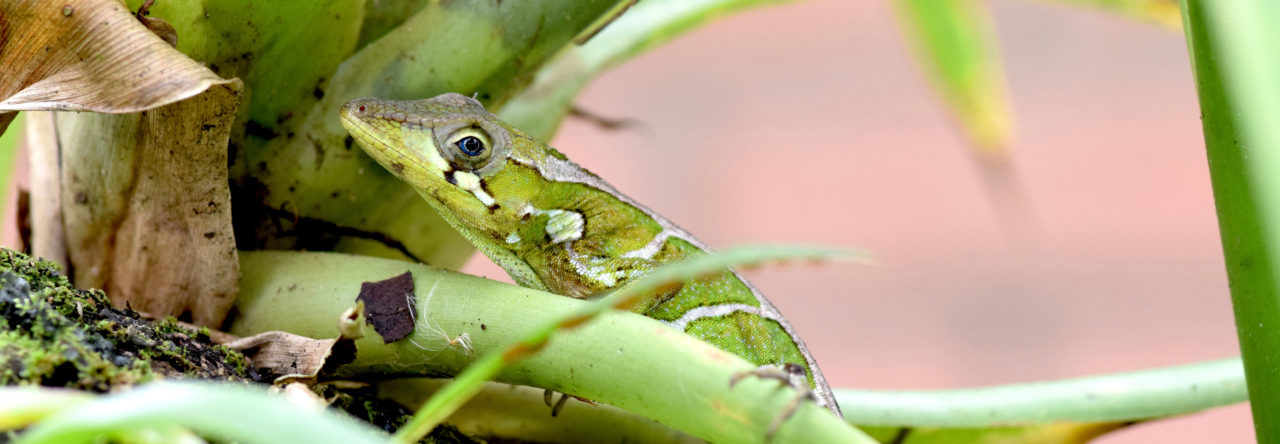As the last 40 years of research attests, anoles present a great study system to investigate questions in evolutionary ecology, especially at the macroevolutionary, cross-species level. Indeed, the rich literature on a large variety of topics including sexual dimorphism, ecomorphology, size evolution, biomechanics and many other topics—reviewed in Lizards in an Evolutionary Tree—has made anoles a veritable model system for evolutionary study.
One area that has received surprisingly little attention is behavioral ecology. Anole behavior is remarkably easy to study in the field, at least for many species. And interesting patterns of divergence in behavior (e.g., territory, mating systems, foraging mode) among closely related species, combined with convergence at a deeper phylogenetic level, make anoles an attractive group for such studies.


